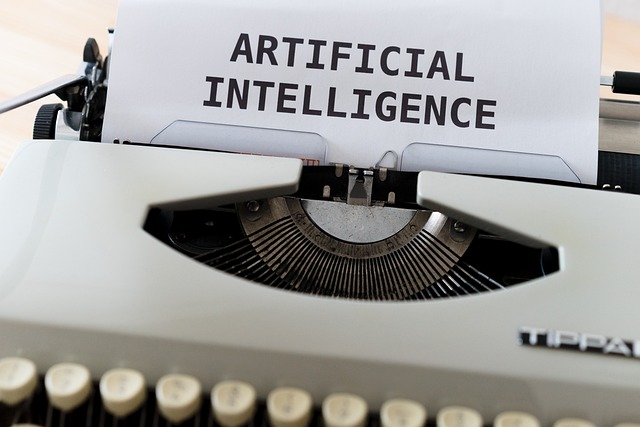“`html
Introduction to AI in Healthcare
Artificial Intelligence (AI) has made significant strides in various sectors, but one area where its impact is particularly profound is healthcare. From diagnostics to treatment plans, AI technologies are transforming how medical professionals approach patient care. While the benefits are substantial, the ethical implications surrounding the use of AI in healthcare warrant careful scrutiny.
The Role of AI in Diagnostics
AI algorithms are increasingly being utilized for diagnostic purposes, often outperforming human clinicians in certain tasks. For instance, machine learning models can analyze medical imaging, such as X-rays or MRIs, with remarkable accuracy. This capability not only enhances the speed of diagnosis but also reduces the likelihood of human error. However, the reliance on AI raises questions about accountability. Who is responsible if a diagnostic tool makes an incorrect prediction?
Accountability and Liability
When AI systems are involved in decision-making processes, accountability becomes a complex issue. In traditional healthcare settings, medical professionals are held responsible for their decisions. With AI, the lines blur. If a patient is misdiagnosed due to an AI tool’s recommendation, should the blame fall on the healthcare provider, the AI developers, or the institution that deployed the technology? This ambiguity necessitates a reevaluation of legal frameworks to ensure that patients are protected while fostering innovation.
AI in Treatment Plans
Another significant area affected by AI is the development of personalized treatment plans. Machine learning algorithms can analyze vast amounts of patient data, including genetic information, to suggest tailored therapies. This level of personalization can lead to better outcomes and more efficient use of healthcare resources. Nonetheless, ethical concerns arise regarding data privacy and consent.
Data Privacy and Consent
The collection and analysis of patient data are critical for effective AI applications in treatment. However, the sensitivity of medical information poses risks. Patients may not fully understand how their data is being used, leading to potential breaches of trust. Informed consent becomes paramount, yet it is often inadequately addressed in the rush to adopt new technologies. Establishing transparent policies around data usage is essential to maintain patient trust and ensure ethical compliance.
Bias in AI Algorithms
Another pressing issue involves the potential for bias in AI algorithms. If the data used to train these systems is not representative of diverse populations, the resulting AI tools may perpetuate existing inequalities in healthcare. For example, an AI system trained primarily on data from one demographic may not perform well for others, leading to disparities in treatment quality.
Ensuring Fairness and Equity
To mitigate bias, it is crucial to use diverse datasets that reflect the population’s variability. This approach requires collaboration among data scientists, healthcare providers, and ethicists. Regular audits of AI systems can help identify and rectify biases, ensuring that all patients receive equitable care. Implementing fairness checks in AI development processes is not just a technical challenge; it is an ethical imperative.
AI and Patient-Provider Relationships
The integration of AI into healthcare also alters the dynamic between patients and providers. While AI can enhance efficiency, it may inadvertently depersonalize patient interactions. The reliance on technology for diagnostics and treatment recommendations can lead to a diminished role for human empathy and connection, which are vital components of effective healthcare.
The Human Element in Care
Maintaining the human touch in healthcare is essential. Patients often seek not just medical expertise but also emotional support and understanding from their providers. As AI takes on more responsibilities, healthcare professionals must find a balance between leveraging technology and preserving the compassionate aspects of care. Training programs that emphasize the importance of interpersonal skills alongside technical proficiency can help bridge this gap.
Future Developments in AI and Ethics
Looking ahead, the future of AI in healthcare is both promising and challenging. As technology continues to evolve, so too will the ethical considerations surrounding its use. Innovations such as AI-driven predictive analytics and robotic surgery are on the horizon, each bringing unique ethical dilemmas.
Proactive Ethical Frameworks
To navigate these complexities, the establishment of proactive ethical frameworks is essential. Stakeholders, including policymakers, healthcare providers, and technologists, must collaborate to create guidelines that address the ethical implications of AI. These frameworks should be adaptable, allowing for ongoing revisions as technology and societal norms evolve. Ethical considerations must be integrated into the design and deployment of AI systems from the outset, rather than as an afterthought.
Conclusion: A Collaborative Approach to Ethical AI
In summary, the integration of AI into healthcare presents both remarkable opportunities and significant ethical challenges. As we embrace these technologies, it is crucial to remain vigilant about the implications they carry. A collaborative approach that prioritizes patient well-being, equity, and transparency will be essential for harnessing the full potential of AI while safeguarding ethical standards. The future of healthcare should not only be driven by technological advancement but also by a commitment to ethical principles that prioritize the dignity and rights of every patient.
“`

